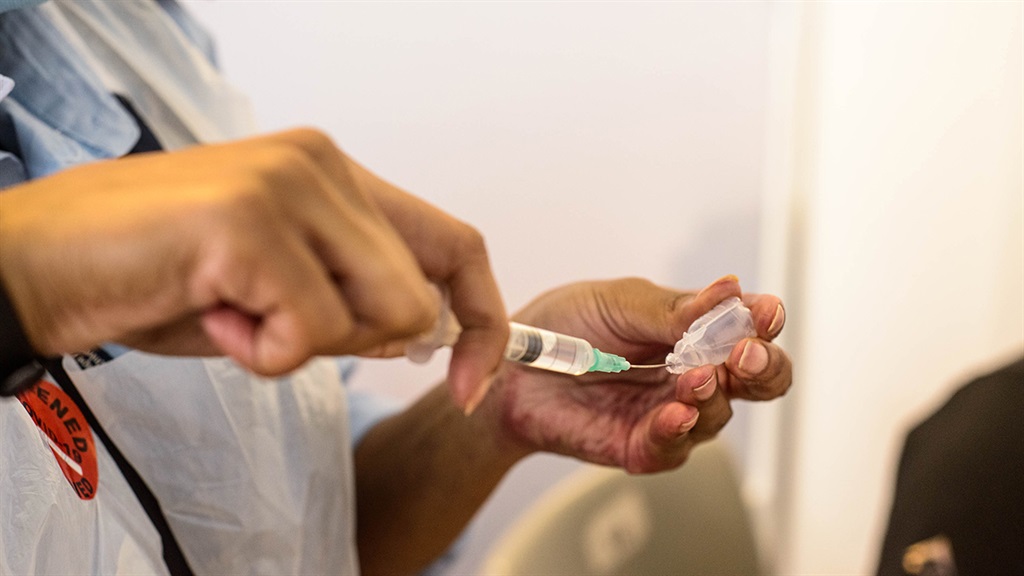- Mandatory vaccination policies will need to be carefully considered by South African companies.
- Employees can refuse to be vaccinated on constitutional or medical grounds.
- It’s the responsibility of the employer to provide alternatives that ensure the worker remains employed while limiting contact with other colleagues.
- This includes allowing the employee to work from home or outside of regular hours.
- If contact with other employees is unavoidable, the worker refusing the jab may be required to wear an N95 mask while at work.
South African companies looking to implement a mandatory vaccination policy in the workplace must first consider a range of alternatives for employees may who refuse the jab.
South Africa’s Covid-19 vaccination programme aims to inoculate 67% of the population – some 40 million South Africans – by early 2022. This targeted herd immunity is intended to return the country to some semblance of normality and revive the economy to its pre-pandemic levels.
This includes the return of employees to their places of work. Throughout the pandemic, companies – especially those with workforces in congregated settings like offices – have been reluctant to reopen even if legally allowed by the loosening of lockdown regulations.
While many office-based workforces have transitioned to working from home over the past year, companies are actively looking at ways to regroup without risking Covid-19 outbreaks in the workplace.
Employers have already been tasked with conducting risk assessments for the safe return of employees by the department of employment and labour. These plans seek to reduce the chance of outbreaks by implementing daily screening and cleaning measures, rotating workers, limiting the number of employees allowed in the building, and providing personal protective equipment.
The most effective way to prevent deadly Covid-19 outbreaks – and return to pre-pandemic levels of productivity – is through vaccination. Companies toying with the idea of forcing vaccines on to their employees will, however, need to be careful according to the department of employment and labour and legal experts.
READ | Your employer can’t fire you for refusing to have Covid-19 jab, but you must have good reason
Employers have a responsibility to keep their workers safe while on duty, according to the Occupational Health and Safety Act. This obligation could be cited as a reason to implement a mandatory vaccination policy, but it will need to be weighed up against the employees’ Constitutional rights of bodily integrity.
The employer will need to identify those workers “who by virtue of the risk of transmission through their work or their risk for severe Covid-19 disease or death due to their age or comorbidities” that must be vaccinated, before considering a mandatory vaccination policy.
A mandatory vaccination policy can only be included in a company’s risk assessment plan following consultation with labour unions and safety committees.
Employees identified as being at a higher risk of Covid-19 infection, disease or death need to be notified of:
- Their obligation to be vaccinated as and when the vaccine becomes available.
- The right to refuse to be vaccinated on constitutional or medical grounds.
- The opportunity to consult a health and safety representative or trade union official.
An employee who refuses to be vaccinated on constitutional or medical grounds can be counselled by the employer and referred for further medical evaluation should there be concerns around a contraindication for vaccination.
If, after counsel and further medical evaluation, the employee still refuses, it’s the responsibility of the company to “reasonably accommodate the employee in a position that does not require the employee to be vaccinated.” Accommodation guidelines provided by the department of employment and labour – which refers relevant portions of the Code of Good Practice in the Employment of People with Disabilities – include the following recommendations that they employee can:
- Work offsite or from home
- Work in isolation, away from other employees, within the workplace
- Work outside of ordinary working hours
- Be required to wear an N95 mask if coming into limited contact with other employees
Companies who do choose to go ahead with a mandatory vaccination policy for the workforce will also need to provide transport to and from the vaccination site for its employees. Workers will need to be assisted with registering on the Electronic Vaccination Data System (EVDS) and if an employee experiences side effects following the jab they must be afforded paid time off to recover.
























